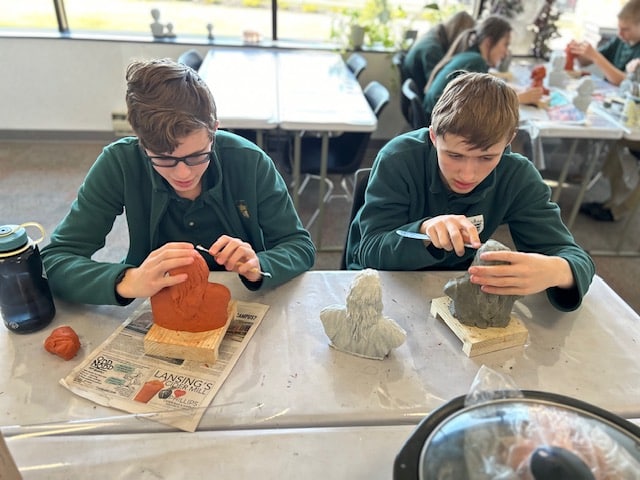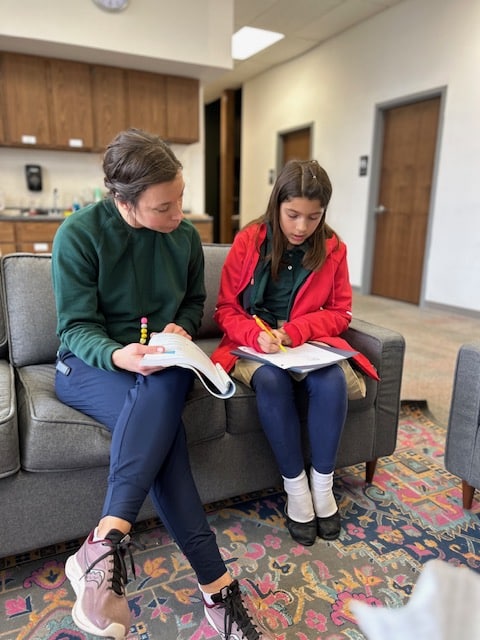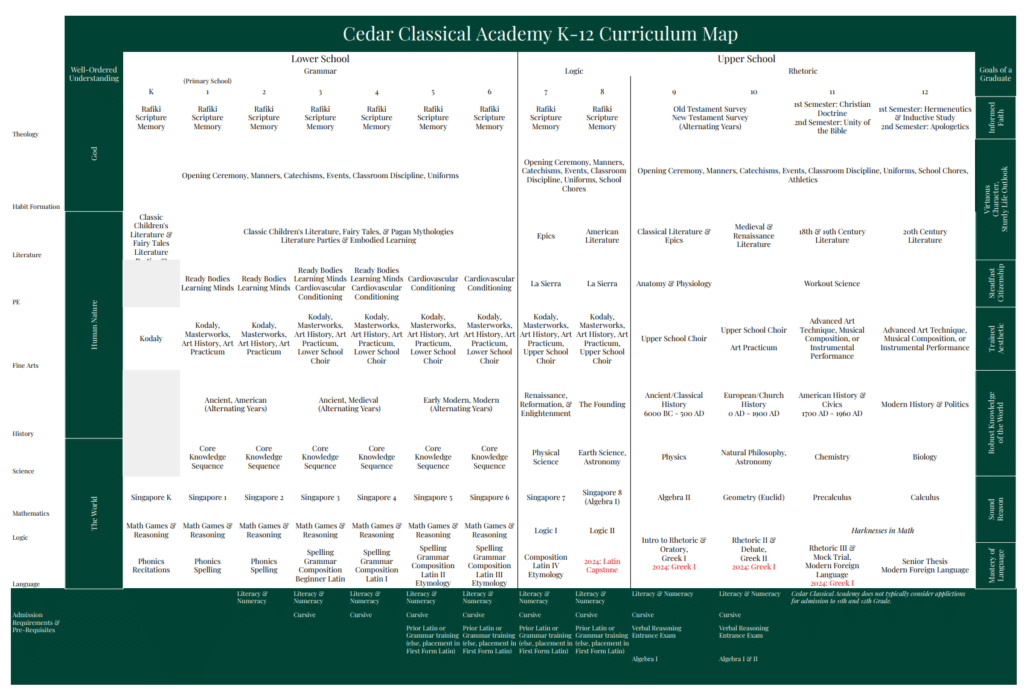Goals of a Graduate
- Informed faith
- Virtuous character (from the Greek kharaktēr, or stamp - something that cannot be removed)
- Sound reason
- Mastery of language
- Trained aesthetic acknowledging objective standards of goodness, truth, and beauty
- Robust knowledge of the world
- Steadfast citizenship at home and in a local church
- Sturdy outlook on life

The Good
Classical education is character education. We are not just teaching reading, writing, and arithmetic. We are teaching humans. Parental involvement, classroom management, recess, physical education, lunchtime, and opening ceremony are all vital components of education as we train students to be good citizens in their communities. A classical curriculum cannot educate as well as a classical school culture. A healthy culture will graduate students who can keep a sturdy life outlook through trials.
The True
Truth does not mean indifferent memorization of cold facts. Truth shapes lives, which is why sound reason is essential. Since theology is the apex of education, we teach all subjects from a Christian worldview to cultivate in our students an informed faith. At the same time, properly viewing the world requires letting each subject stand on its own merit. History, science, and literature have some messy edges; we train students to graciously navigate them as they gain robust understanding of the world around them.
The Beautiful
We offer a rich arts and music curriculum, incorporating memorization of old hymns and great speeches, embodied learning, nature study, poetry, singing, and the copying of masterworks into the daily classroom routine. Students master language through a sequential course through phonics, grammar, composition, Greek & Latin, rhetoric, and more. We give beauty the time it deserves to form grooves in children's lives that train their aesthetic.
"Nay, but let every good and true Christian understand that wherever truth may be found, it belongs to his Master."
Augustine
Curriculum At a Glance
Our part-time kindergarten class meets three mornings a week. Kindergarten courses include theology, music, math, literature, phonics, and enrichment (science, PE, and seasonal topics like Thanksgiving). Kindergartners get two recesses each day, and eat lunch with the "big kids." In literature, Kindergarten read-alouds include Winnie the Pooh, St. George and the Dragon, The Princess and the Goblin, The Lion, the Witch, and the Wardrobe, and lots of fairy tales. Our two primary goals in Kindergarten are literacy and numeracy.
More about our theology curriculum:
We were thrilled to pilot The Rafiki Foundation's Bible study curriculum in 2019. The Rafiki Foundation's classical schools attached to their orphanages in Africa have developed this robust theology curriculum that takes their students through the entire Bible between grades K and 12. Our K-8 theology classes include expositional Bible study, hymn practice, catechism memorization, and Scripture memorization.


